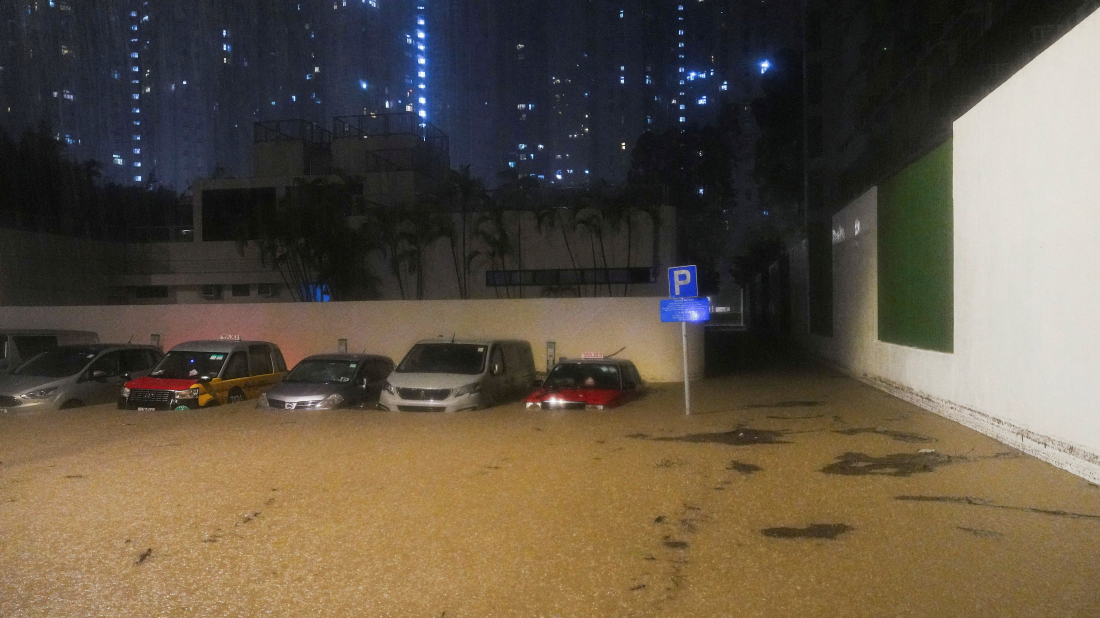Google Pledges $1 Billion to Support AI Education for University Students in the U.S.
Tech giant Google has announced a $1 billion investment to support artificial intelligence (AI) education and research at universities across the Unit...

Southern China is battling the aftermath of record-breaking monsoon rain, as flooding disrupts travel, threatens public health, and raises economic concerns.
Rescue teams in southern China are racing to clear debris and flooded roads after some of the heaviest August rain in over a century, brought by a peak in East Asian monsoon activity.
Guangzhou’s Baiyun airport was forced to cancel more than 360 flights and delay hundreds more as the downpour pounded Guangdong province, while Hong Kong recorded its heaviest August rainfall since 1884.
The extreme weather has triggered mudslides, felled trees, and torn up roads, exposing underground infrastructure.
Health concerns are rising alongside the floods. An outbreak of chikungunya- transmitted by mosquitoes breeding in stagnant water is spreading, particularly in the city of Foshan.
More than 7,000 cases have already been reported, and authorities warn of worsening conditions due to typhoons and continued rain.
Beijing has allocated more than 1 billion yuan ($139 million) in emergency aid to Guangdong, Hebei, Inner Mongolia, and the capital.
Experts say the floods are likely to impact agriculture, and hurt consumer-facing businesses, especially in hard-hit regions like Guangdong.
"The rains will drive up prices for fresh fruits and vegetables," said Dan Wang, a China expert at Eurasia Group.
The worst may still be ahead: authorities expect two to three more typhoons in August, with further economic and human consequences likely in the coming weeks.
The world’s biggest dance music festival faces an unexpected setback as a fire destroys its main stage, prompting a last-minute response from organisers determined to keep the party alive in Boom, Belgium.
According to the German Research Centre for Geosciences (GFZ), a magnitude 5.7 earthquake struck the Oaxaca region of Mexico on Saturday.
Australian researchers have created a groundbreaking “biological AI” platform that could revolutionise drug discovery by rapidly evolving molecules within mammalian cells.
China and the Association of Southeast Asian Nations will send an upgraded ‘version 3.0’ free-trade agreement to their heads of government for approval in October, Chinese Foreign Minister Wang Yi said on Saturday after regional talks in Kuala Lumpur.
A series of earthquakes have struck Guatemala on Tuesday afternoon, leading authorities to advise residents to evacuate from buildings as a precaution against possible aftershocks.
Most peace talks fail. Some drag on for years. Others collapse in days. But even when they don’t succeed, they can save lives. From backchannel meetings to battlefield truces, here’s how peace talks actually work — and why making peace is often harder than making war.
The U.S. State Department has approved the sale of aircraft equipment worth $404 million to Australia.
U.S. Secretary of State Marco Rubio has said that Washington now has a clearer picture of the conditions under which Russia may be willing to end its war in Ukraine.
In the southern Aude region, France is currently battling the country’s largest wildfire in 80 years. The blaze is spreading rapidly, covering an area larger than Paris.
Residents and visitors in Chicago have been experiencing unusual haze and poor air quality recently, as the city grapples with a combination of smoke from over 700 wildfires raging in Canada and elevated ozone levels.
You can download the AnewZ application from Play Store and the App Store.

What is your opinion on this topic?
Leave the first comment